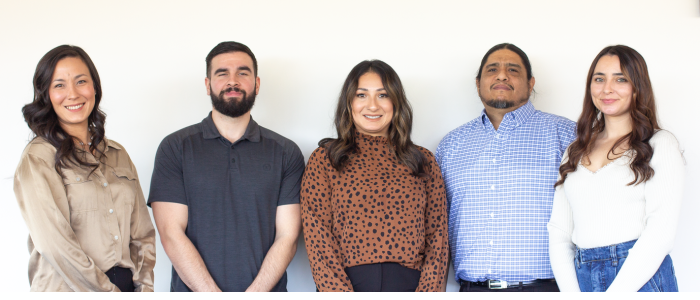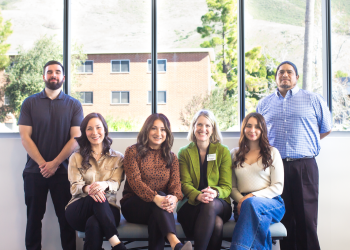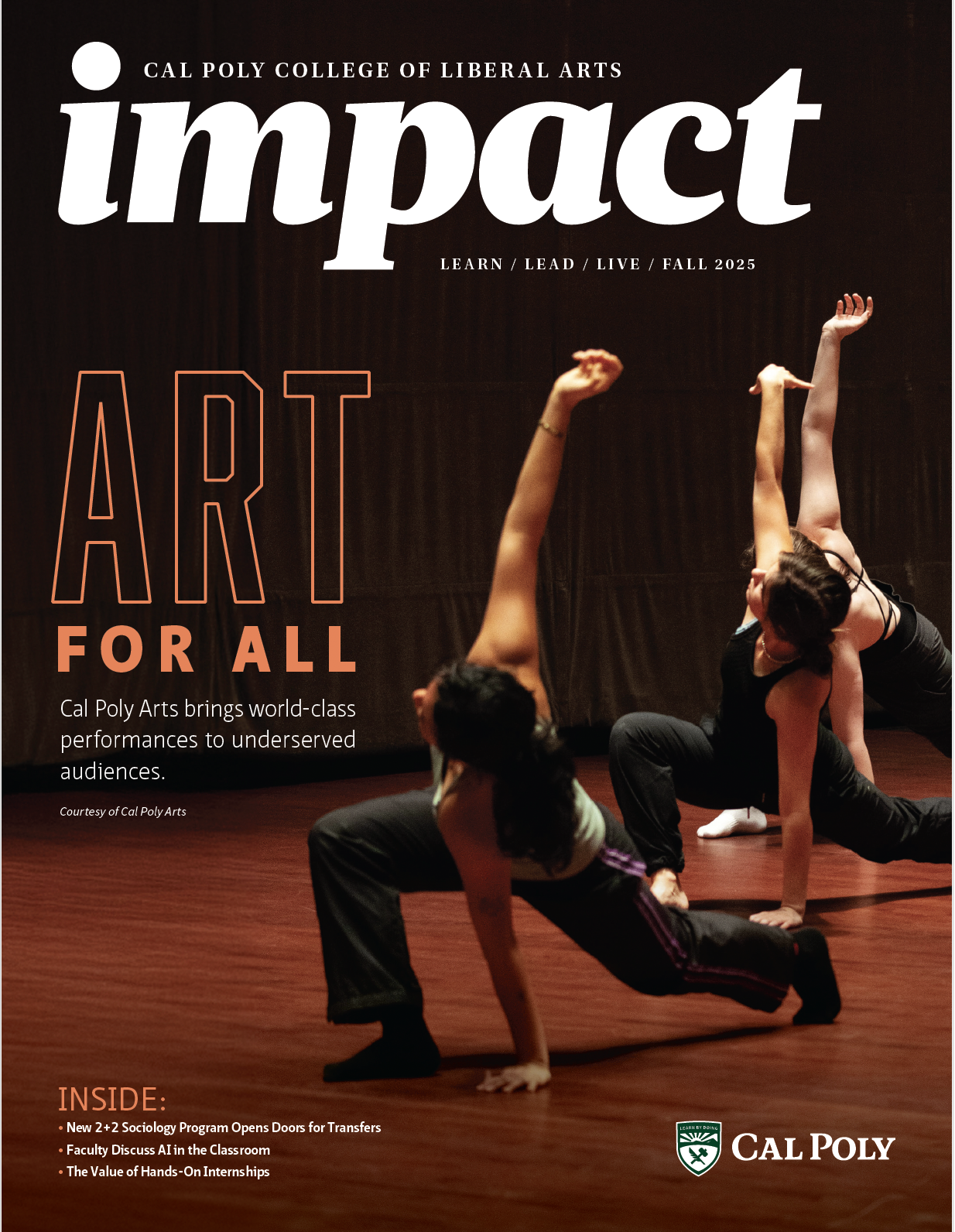2+2 Sociology Program Brings Bachelor’s Degrees Closer to Home
Students face many challenges, but the 2+2 sociology degree ensures that geography is less of a barrier.
 Left to Right: Inagural cohort students Katherine Grose, Chris Tidd, Norma Salinas, Angel Tacbas and Tawny Lino
Left to Right: Inagural cohort students Katherine Grose, Chris Tidd, Norma Salinas, Angel Tacbas and Tawny Lino
Editor's Note: Since publication, this program has been renamed to the Cal Poly Bachelor's Pathway in Sociology at Allan Hancock College. All references to "2+2" and "pathway" are referring to the same sociology program.
A partnership with Allan Hancock College is bringing Cal Poly’s renowned education to students in northern Santa Barbara County. Through this program, students will complete a two-year associate degree for transfer at Allan Hancock College, apply to Cal Poly as transfer students, and then complete two additional years in Cal Poly’s sociology program, but on Allan Hancock’s campus.
In fall 2024, the first student cohort joined the Mustang family. While 2+2 students are Cal Poly transfer students, the program offers a flexible structure tailored to students balancing school with work and family obligations. Cal Poly faculty teach required courses in person on the Santa Maria campus, and classes are block-scheduled to accommodate students’ busy lives.
“I probably wouldn’t have gone back to school if this program wasn’t available,” said Tawny Lino, a student in the inaugural cohort. “Logistically, it wouldn’t have worked for me. I have two young kids. I work eight hours a day — the commute alone would have made it very difficult. A bachelor’s degree probably wouldn’t have been in my future, but now I’m thinking of getting my master’s degree and working with the VA as a licensed clinical social worker.”
Lino also credited Cal Poly advising staff for helping her navigate her academic plan. “They were able to rearrange my schedule because I had a lot of transfer credits, so I’ll graduate a little bit earlier than my cohort.”

Left to Right: 2+2 Students attended the 2025 Social
Sciences Career Expo and met with Dean Murphy.
Once admitted, 2+2 students become fully enrolled Cal Poly students with access to the university’s support services and resources — many of which they can access virtually. “I was surprised by how they want to bring everything to us,” added Angel Tacbas, another cohort member. “I thought we would have to come to San Luis Obispo to figure out financial aid or come to meetings, but they reach out to us over Zoom. Knowing that we can still enjoy Cal Poly’s campus resources like the library makes the experience better, but I can feel that the university wants to bring everything to us.”
While the 2+2 sociology program is Cal Poly’s first, it reflects the university’s broader mission to expand access for qualified transfer students by reimagining what access to a four-year degree looks like. This fall, the Bailey College of Science and Math and Cuesta College are launching a similar program for liberal studies students pursuing careers in teaching, and another Allan Hancock 2+2 business administration program with the Orfalea College of Business has been announced for 2026.
"This program is a great example of what can happen when we rethink traditional models and work to remove barriers for students,” said Al Liddicoat, Cal Poly’s interim provost and executive vice president for academic affairs. “By partnering with community colleges like Allan Hancock, we’re expanding access to Cal Poly’s exceptional programs while maintaining the Learn by Doing experience and student support that define us."
The cohort-based model encourages students to form lasting connections with peers while easing logistical burdens like course registration. According to faculty and students alike, this tight-knit environment has been one of the most meaningful aspects of the program.
“Connecting so well with my cohort makes things so nice because you have this sense of family when you’re doing the program together,” said Norma Salinas, another 2+2 student. “You don’t feel like you’re the only one stressing out over these deadlines. That aspect of the program surprised me, but I think it makes things a lot easier as opposed to taking a bunch of classes with different people. In that setting, you don't make those same connections.”
Graduates of the program will be equipped for careers in social work, education, criminal justice and nonprofit organizations — many with plans to stay and serve their local communities. Students have shared goals that range from earning master’s degrees to becoming licensed clinical social workers or teachers.
“This is an amazing group of students,” said Lata Murti, sociology lecturer and 2+2 recruitment and retention coordinator. “I’m learning as much from them as I hope they’re learning from me. In Santa Maria, there aren’t many opportunities for higher education, so we’re looking at challenges as possibilities. I think this program is going to make a bigger impact than we can see right now.”

